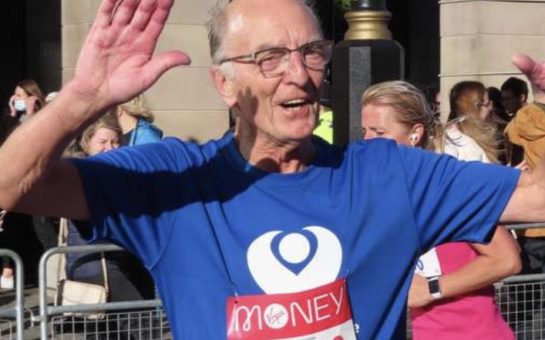Liberal Democrats are expected to take another hammering in the General Election and a popular Manchester MP may lose his seat, if the latest polls are anything to go by.
Just 9% of voters plan to vote for the Lib Dems in next year’s General Election – lagging well behind Labour who were up to 43% locally – but Withington MP John Leech fared better than most of his party colleagues, polling 50% higher.
The Lord Ashcroft study, which focused on the MP’s constituency of Withington and four other wards nationwide, showed that voters were turning their back on the Lib Dems in their droves for Labour and the Green Party, who were up to 10%.
James Hennigan, press spokesperson for Leech, said: “Pollsters and journalists said John had no chance of winning in 2005 and the bookies would not even offer odds. They then said he would lose his seat in 2010.
“John plays centre-forward for the Parliamentary football team – when he wins in 2015 it won’t be the first time he has scored a hat-trick.”
Leech supporters mainly came in the 35-44 and 65+ demographics with 17% and 20% respectively, while youngsters looked to veto the liberal vote with just 5% in the 18-24 and 25-34 categories.
The figures suggest a complete turnaround from 2010 when the Liberal Democrats pipped Labour by a single per cent with 28% of the vote at the last election.
However, the figures suggest that the Lib Dems demolition at the hands of Labour in the local and European elections in May – where the party surrendered all their seats – was not a one-off.
But Hennigan insisted that Leech’s track record will be enough to save his Manchester seat.
“John has a proven record of standing up for local residents and getting things done over the last nine years,” said Hennigan.
“Manchester Withington residents appreciate having such a strong MP who is willing to stand up for them and it is up to them to decide whether they want a strong voice or another Labour career politician.
“Some things in the poll we recognise. John polled 50% higher than the party vote. That is because he is a strong, hard-working, independent MP who isn’t scared to speak out against the Government when it is in the best interest of his constituents.
“We were surprised that the poll had the party vote at 15%, the last local elections saw the Lib Dems receive 26% of votes cast and a 5% swing from Labour.”
The Green Party have also made inroads into the Liberal vote and sit joint-third, continuing a rise that has seen them scoop around one-in-seven Lib Dem defectors in these seats since 2010.
According to Ashcroft, for every two Lib Dem defectors switching to Labour, one has gone to the Greens nationally.
Chair of the Manchester Green Party Deyika Nzeribe: “It’s great and it’s pretty much in line with our percentage of the votes for the European elections in Manchester when we posted 12.6%.
“It’s a really good foundation for us going forward. It’s a good confirmation.”
Deyika also insisted that the media blackout surrounding the party has limited their penetration with voters.
“There is a lot of attention around the elections this year, especially given the euros and all the attention UKIP got,” said Deyika.
“We are left a little if we got reasonable coverage what we would get and we are looking forward to seeing what we get going forward.”
Based on research from 4,000 telephone interviews in four of the most closely-contested Withington and Bradford East, Brent Central, and Norwich South, the Lib Dem share is down from 38% to 19%, with Labour up 11 points to 47% nationally.
This amounts to a swing of 15%, enough, in theory, for Labour to gain 17 current Lib Dem seats if repeated across the board at an election.
However, Ashcroft insists that due to the ‘heavily localised nature of Lib Dem support’ means such a uniform swing is unlikely.
Overall, the research suggests up to half of Lib Dem MPs could be at risk at next year’s election.
Commenting on the results, Lord Ashcroft said: “This is a snapshot not a prediction, and the race in these seats may well narrow over the next few months.
“But as things stand things look very difficult indeed for the Liberal Democrats in seats where Labour are their closest challengers.”
Two fifths (41%) of 2010 Lib Dem voters naming a party said they would vote Lib Dem again at the General Election. 30% said they would vote Labour, 14% Green, 7% UKIP and 6% Conservative.
Two thirds (67%) of those switching to Labour ruled out returning to the Lib Dems before the election.
Just over one third (35%) of voters in these seats said they would rather have Ed Miliband as Prime Minister than David Cameron.
A quarter (26%) said they were satisfied with Cameron, while 25% said they were dissatisfied but prefer him to Miliband. Only 62% of Labour voters said they would rather see Miliband as PM than Cameron.
Just over half of voters expected the economy to do well over the next year, both for the country as a whole (57%) and for themselves and their family (60%).
UKIP voters were the only group among whom more expected the economy to do badly for the country (53%) than well (45%).
More than half (60%) of all voters in the Labour-Lib Dem seats said they would like to see Labour in government after the election, either alone (45%) or in coalition with the Lib Dems (15%).
Meanwhile 14% wanted a Conservative government and 10% another Conservative-Lib Dem coalition.
Image courtesy of The Patchwork Foundation, with thanks.



